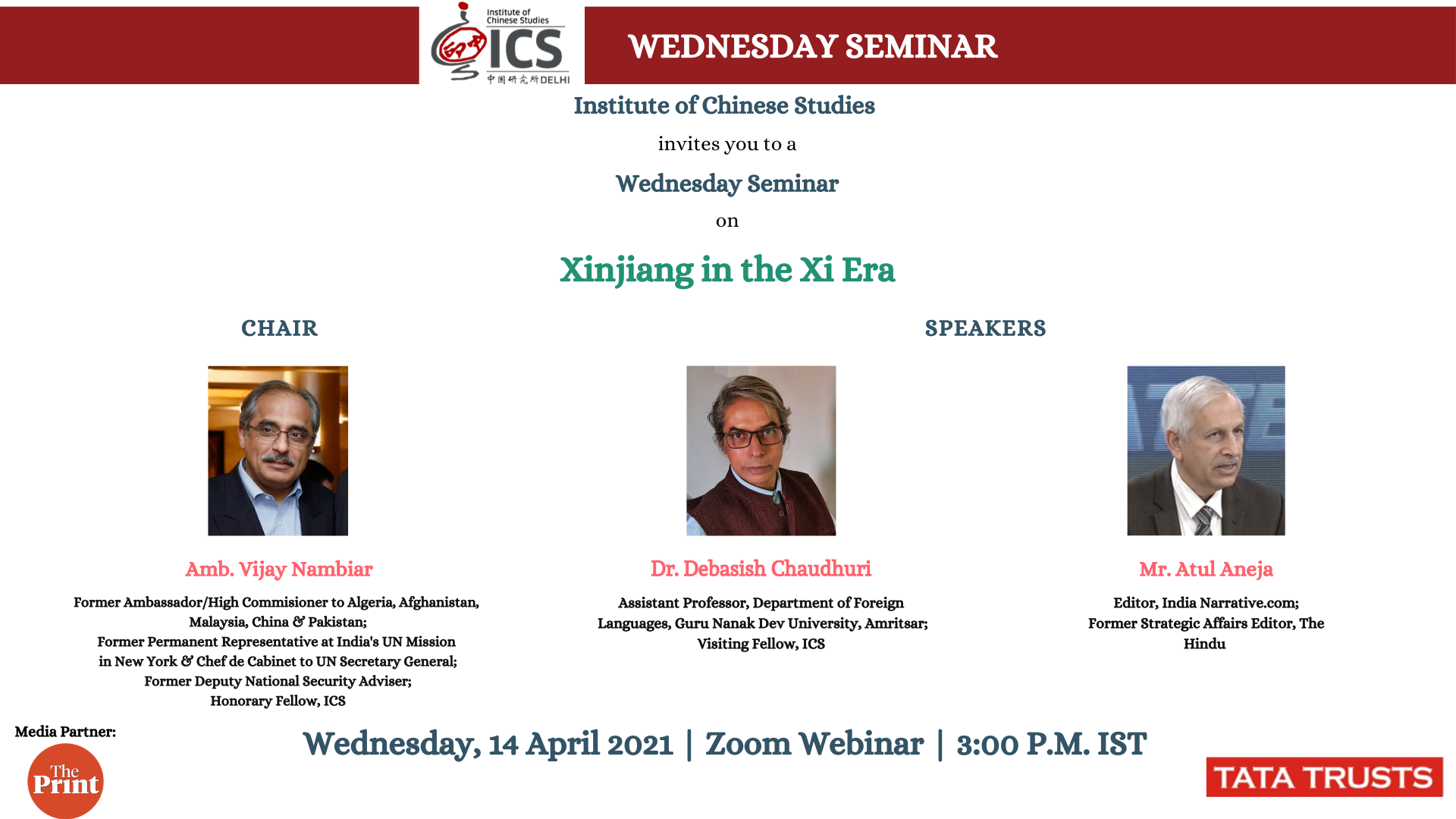.png) |
| |
| ICS-KAS Conversation | Ensuring Deterrence along the India-China LAC: The Way Ahead |
|
Lt. Gen D S Hooda (Retd.), Lt. Gen. Praveen Bakshi (Retd.), Air Marshal Anil Khosla (Retd.)
Wednesday Seminar | Zoom Webinar |7 April 2021
|
| |
|
The events of 2020 mark a watershed moment for Sino-Indian relations, with India reevaluating its strategic posture vis-à-vis China. Reorienting the country's military posture remains a crucial aspect of deterring future Chinese aggression along the border. Though the past few decades have seen various CBMs and border agreements holding the peace along the Line of Actual Control (LAC), events like the Galwan clash and Op Snow Leopard reflect the inadequacy of past agreements, and the urgent need to bolster India's conventional deterrence against China's military. What are the immediate doctrinal changes and modernisation India's military should take to counter the continental threat from China? What aspects of China's military should worry India's security establishment the most? Will the LAC now be an 'active' border, as the Line of Control is with Pakistan? How can India rebuild CBMs and ensure credible deterrence against China? How should the Army and Air Force work together to ensure a military edge along the LAC? These themes, and other issues were discussed in this webinar.
|
| |
|
|
 |
| |
| Xinjiang in the Xi Era |
|
Debasish Chaudhuri, Atul Aneja
Wednesday Seminar | Zoom Webinar |14 April 2021
|
| |
|
China has witnessed the emergence of a new political culture and social control mechanisms since Xi Jinping has taken charge of the party-state. The political leadership has not only redefined China's 'core interests' and brought every aspect of statecraft within the rubric of national security, but, in the process, also increased the intrusive role of the state and further restricted social aspirations and any possibility of dissent within communities. The introduction of advanced surveillance technologies and social monitoring techniques as well as the innovations brought about in their wake have occasioned certain quintessential changes in the securitization framework across the country. Given the history of Uyghur separatism and the intermittent outbursts of violence in the XAR, that Region has, of late, become a site of experimentation in a range of novel methods of coercion, officially claimed to be part of the de-extremization process there. In the larger context of China's global outreach and Xinjiang's immense and increasing geo-strategic and geo-economic importance, the stability and growth of the region is thus directly linked with how the regime manages to shape the voices of the ethnic communities within the region as well as, more broadly to contain the deeply rooted majoritarian prejudices against ethnic minorities in general and against Islam in particular. The panelists reflected on and discussed a recently published ICS Monograph titled Countering Security Challenges in Xinjiang – Rise of the Surveillance State? The study explores the situation in Xinjiang against the broader canvas of China's political environment under President Xi Jinping.
|
| Listen> |
|
|
.png) |
| |
| 18th Russia-India-China Trilateral Academic Conference: Challenges and Opportunities in the Post-Covid International Order |
|
RIC |22-23 April 2021
|
| |
|
The Russia-India-China (RIC) Academic Trilateral Conference, a Track-II initiative was undertaken by the RAS Institute of Far Eastern Studies (IFES), Moscow, Institute of Chinese Studies (ICS), Delhi and China Institute of International Studies (CIIS), Beijing in 2001. In the years since, this exercise has contributed in deepening and broadening collaboration and cooperation in variety of fields and the RIC has already became known for its creative innovation and thinking in the field of international relations. The RIC trilateral academic conference is engaged in deliberation on deepening of cooperation in diverse areas like energy, environment, health, agriculture and education which contribute to transformative process in these countries. The conceptual and organizational experience of RIC has been applied in the formation of BRICS, which adheres to the RIC principle of the ‘Three No’s (‘no confrontation, no bloc, and no targeting against third countries’). RIC countries, by rejecting the policy of force, following the instruments of dialogue, “soft power” and cross-civilization dialogue has contributed in the process of elimination of imbalances and relaxation of turbulence in the international politics.
|
| |
|





